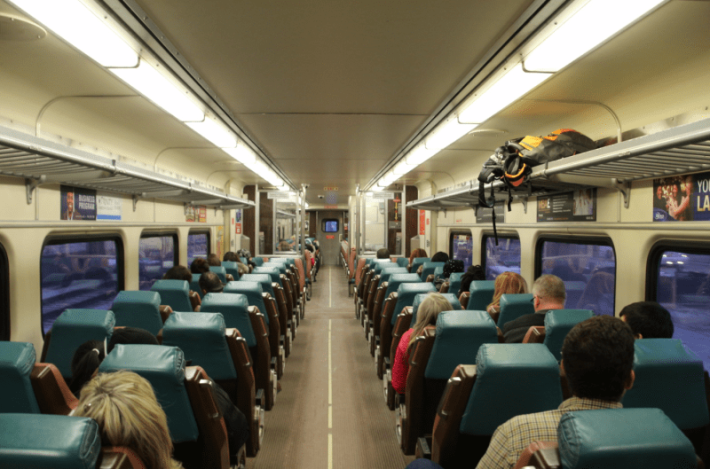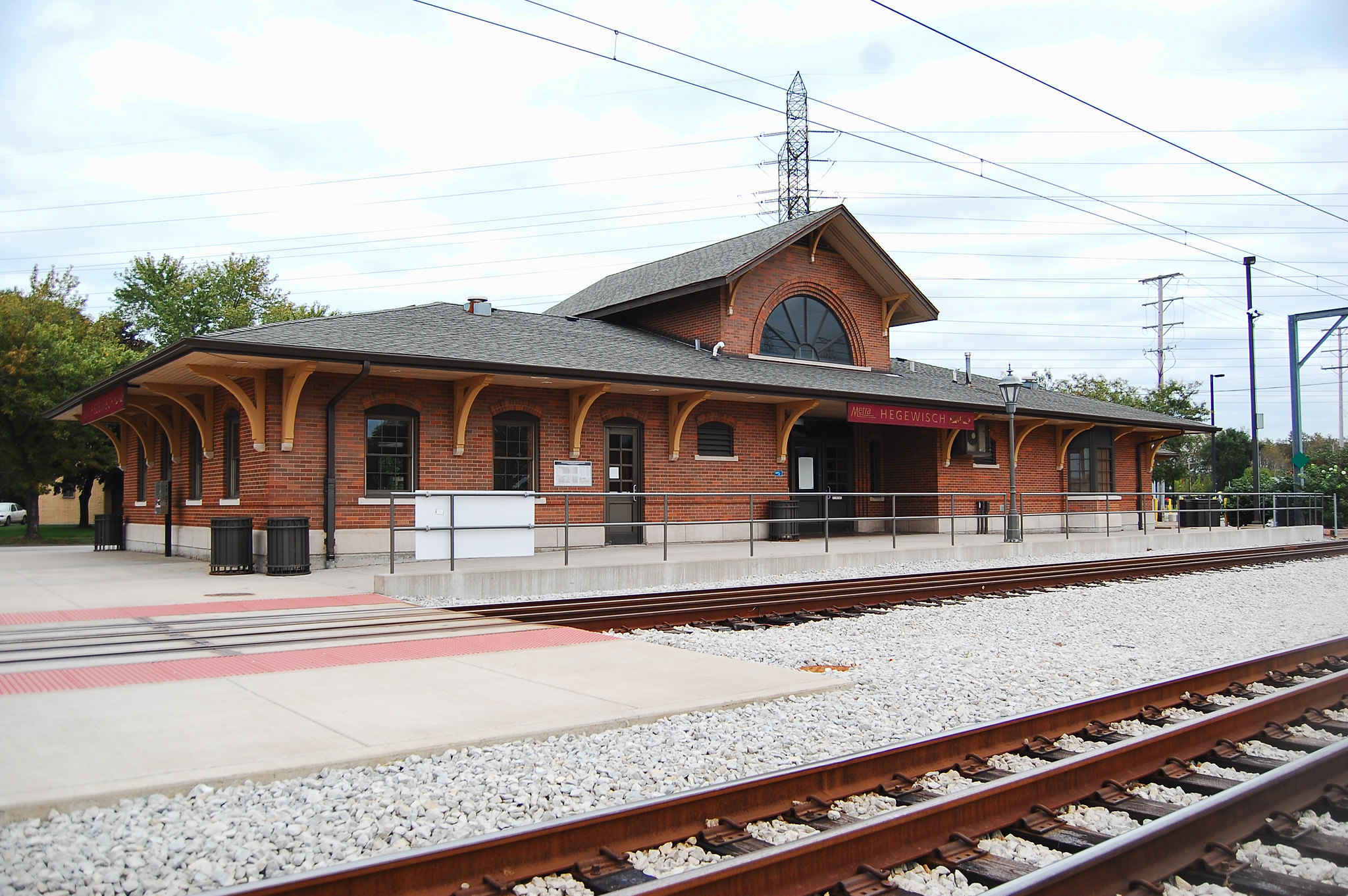A little a year ago, there was a tragic example of the consequences of wrongheaded transit policing in Chicago. On February, 28, 2020, the very day Mayor Lori Lightfoot announced that the city would be adding 50 new officers to the Chicago Police Department’s public transportation unit in response to a recent wave of violent robberies on the CTA, officers shot Ariel Roman, 33, twice after trying to detain him for walking between 'L' cars, inflicting life-changing injuries.
When the two officers tried to stop Roman for this minor breach of CTA rules, he fled. Rather than letting the unarmed man go, the officers pursued him and escalated the situation, pepper spraying and tasing him before recklessly shooting up a Grand Avenue Red Line station escalator after him, which could have easily resulted in the death of a bystander. Roman, who worked as a cook, was wounded in the buttocks and abdomen. As of last August, he was still forced to use a colostomy bag. He has filed a federal lawsuit agains the city of Chicago and the two officers.
There are some parallels between that case and the police-involved shooting of a South Shore Line rider last Thursday, March 4, at the Hegewisch station on Chicago's Southeast Side. However, in contrast to the Roman incident, judging from accounts from the Northern Indiana Commuter Transportation District Transit, which runs the South Shore Line; the Chicago Police Department; prosecutors; and multiple witness, it appears that the onboard employees and rail police officer involved were acting in accordance with the protocols they were taught and did nothing wrong. But the shooting raises questions about what policy for dealing with fare evaders on trains would be most effective for preventing a conflict over a minor violation from escalating to bloodshed.
According to a statement from NICTD, at about 7:50 a.m. Thursday, Lansing, Illinois, resident Alfredo Alanis, 33, boarded a westbound South Shore Line westbound train in Hammond, Indiana. After the ticket collector asked him to pay his fare, "[Alanis] refused and began to get extremely agitated." The agency says the collector "quickly worked to de-escalate the situation and called the conductor [a higher-ranking employee] for help. [Alanis] became aggressive despite multiple attempts by the collector and conductor to calm him down."
NICTD said that, "in accordance with his training, and to protect passengers and crew, the conductor requested police backup to resolve the situation." A NICTD police officer who was nearby met the train at the Hegewisch stop around 8:05 a.m. The agency said "the officer attempted to peacefully resolve the situation but was unsuccessful. The offender became aggressive, attacking the officer and putting the officer’s health and safety, as well as the health and safety of others, in grave jeopardy." According to NICTD, after a struggle with Alanis, the officer "was forced to discharge his weapon."
The CPD, which was not involved in the incident but has taken over the investigation of the case, confirmed the basic information provided by NICTD, adding in a statement that Alanis was hospitalized for a gunshot wound to the stomach, and the railroad officer was taken to a separate hospital for facial injuries.
At a bond hearing for Alanis last Saturday, Cook County prosecutors provided more details about the shooting, the Chicago Sun-Times reported. Alanis has been charged with aggravated battery to a peace officer, and a judge set bail for $50,000.
According to prosecutors, before the shooting the NICTD officer asked Alanis several times to leave the train to discuss the situation, but he refused. Alanis verbally attacked other riders before exiting, and as he was leaving the officer put his hand on Alanis' arm to guide him out. Alanis then punched the officer in the face, leading to a struggle, in which Alanis clawed at the officer's face and eyes and put him in a headlock, compressing the officer's neck. In “fear for his life,” the officer shot Alanis in the stomach. At least eight witnesses saw the attack, which was also recorded on the officer's body cam.
Alanis, who has multiple convictions for felonies, including one for a 2019 charge of criminal possession of a weapon, and misdemeanors, is due back in court on March 15, the Sun-Times reported.
“We commend the actions of our crew and our police officer in the handling of an extremely disruptive individual on one of our trains today," said Mike Noland, president of the South Shore Line, in a statement. "Passenger safety is NICTD’s top priority, and our crew and police officer sought to safely and peacefully resolve a very difficult situation in accordance with their training.”
“All of our police officers are trained to de-escalate tense situations and avoid confrontation," Noland added. "This offender thwarted the officer’s efforts to resolve this situation peacefully and attacked our officer, putting his life and the lives of others at risk. This is the first time something like this has ever happened on the South Shore Line. Because of the heroic actions of our officer, this situation ended without tragedy.”

Indeed, it is fortunate that no one died from this confrontation, and it appears that the South Shore Line employees themselves were not to blame for the violent struggle, because they were following the guidelines they were taught. The question is, what kind of protocols should transit agencies have in place for responding to riders who refuse to pay their fares and become belligerent?
Asked about this issue, Active Transportation Alliance spokesperson Kyle Whitehead emailed, "We support decriminalizing fare evasion (see p. 25 of our Fair Fares Chicagoland report). Fare evasion isn’t a safety issue and police should not waste their resources on criminalizing fare evaders who are often low-income people of color. We support alternative penalty structures like community service hours and enrollment in a reduced fare program for low-income riders."
After Alanis refused to pay and became agitated, would it have made more sense for South Shore Line policy to dictate that the ticket collector ignore him and move on, rather than calling for backup, which eventually resulted in the rider attacking the officer? This kind of protocol might create a situation where anyone who chooses could simply decline their fare, even being belligerent as they do so, leading to a loss of revenue and a breakdown of civility on the train.
It's a complex question, but it's possible that such a lenient policy might be worth the downsides, if it helps prevent the kind of near-deadly scenario we saw last week.




